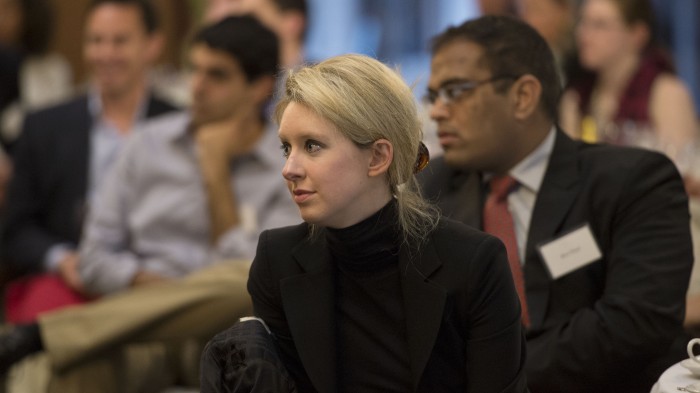Theranos Makes Another Unforced Error
As far as Theranos goes, its latest round of bad news isn’t all that bad, actually.
During a high-profile appearance at a scientific conference earlier this month, CEO Elizabeth Holmes unveiled a device she called the miniLab. She said it would, among other things, be able to detect Zika virus from a finger-prick of blood. Since then, the company had tested people in the Dominican Republic, where the mosquito-borne disease is prevalent, as part of a plan to seek FDA approval for its test.
But as the Wall Street Journal reports, an inspection by the FDA has found that Theranos failed to follow safety procedures in conducting the tests, and the company has now withdrawn its bid.

Theranos has been beset by failures lately, and can’t seem to reverse the trend. Ever since she dropped out of Stanford to found Theranos in 2003, Holmes has been promising a revolution in blood testing. Holmes’s pitch, that dozens of blood tests could be performed using a small vial of blood drawn from a person’s finger, was compelling enough to get the company valued at nearly $9 billion.
It all started to unravel last year, when a Wall Street Journal investigation found that the company was diluting blood samples to run on conventional machinery. Close inspections by government agencies followed, then fresh findings of poor lab practices, data showing Theranos was producing dangerously inaccurate results, and finally Holmes being banned from her own company’s labs (a ban she may still appeal).
On the one hand, that makes the latest news not such a big deal. The FDA didn’t say that the miniLab doesn’t work—it just said Theranos didn’t collect the data properly.
On the other hand, the latest misstep makes the company look brazen and careless. Holmes started the month trying to turn over a new leaf, and had to know Theranos would be under a regulatory microscope. Why try to add a flashy new capability in the Zika test? Why not prove instead that its core technology just plain works?
When Holmes announced the miniLab, scientists in the field were already deeply skeptical of any claims she or Theranos made. Continuing to add to the litany of bad results is unlikely to make anyone feel sanguine about the company’s prospects.
(Read more: Wall Street Journal, “Theranos Unveils 'MiniLab' Invention to a Skeptical Audience,” “Theranos Promised a Revolution, but Delivered Dangerous Errors”)
Keep Reading
Most Popular
Large language models can do jaw-dropping things. But nobody knows exactly why.
And that's a problem. Figuring it out is one of the biggest scientific puzzles of our time and a crucial step towards controlling more powerful future models.
The problem with plug-in hybrids? Their drivers.
Plug-in hybrids are often sold as a transition to EVs, but new data from Europe shows we’re still underestimating the emissions they produce.
Google DeepMind’s new generative model makes Super Mario–like games from scratch
Genie learns how to control games by watching hours and hours of video. It could help train next-gen robots too.
How scientists traced a mysterious covid case back to six toilets
When wastewater surveillance turns into a hunt for a single infected individual, the ethics get tricky.
Stay connected
Get the latest updates from
MIT Technology Review
Discover special offers, top stories, upcoming events, and more.